Change A Habit: How The Health Care System Has Taught Us Bad Habits
CHANGE A HABIT: HOW THE HEALTH CARE SYSTEM HAS TAUGHT US BAD HABITS (ISSUE 70)
By Diane Gold
CHANGE A HABIT is an expression that can refer to making an adjustment to just about anything we do. It refers to habits that are both good for us and bad.
According to Chris Brogan, CEO of Human Business Works and New York Times Best-Selling Author,
“Habits come from repeated practice and some sense of reward (negative or positive) for the actions we take.”
When we think of habits, we often forget some of the great ones we have like drinking water, brushing our teeth, meditating, exercising, writing or shaking hands or bowing when we meet people. We don’t usually think about these because they complement our lives and preserve our health and self-esteem.
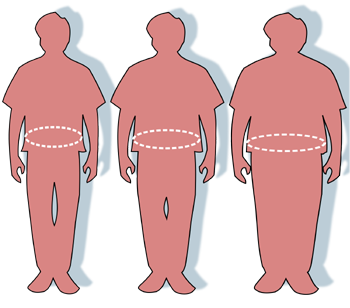 What we often think about when the word “habit” comes up are overindulgence in eating, drugs, drinking alcohol, gambling, etc. These habits are behaviors we have repeated so many times they now require a considerable effort to stop, different from what would happen should we find out that a good habit, tooth brushing, did harm to us.
What we often think about when the word “habit” comes up are overindulgence in eating, drugs, drinking alcohol, gambling, etc. These habits are behaviors we have repeated so many times they now require a considerable effort to stop, different from what would happen should we find out that a good habit, tooth brushing, did harm to us.
Our behaviors of habit, whether supportive or not, have been learned on our own or with the help of our families. What I didn’t think of until I watched Escape Fire last night, a CNN documentary about the U.S. health care system crisis, is that many of our poor health habits have been taught to us through the misinformation given to us by the health care providers we trust with our lives.
Some of what we have been taught by these care givers is:
1) We need animal protein because plant-based protein is not a complete protein.
2) We need a portion of animal based foods in our diet.
3) The more tests and procedures, the better.
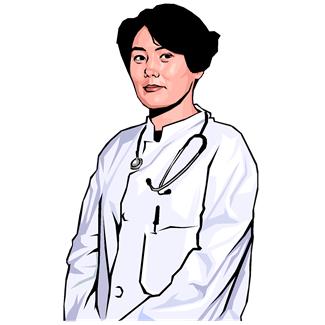 4) Going to our medical professional to get drugs is what we do when we are sick. Nutritional counseling is not part of going to the doctor. Why? In our current health care system, there is no reimbursement for our doctors’ talking about food. What’s even more disturbing is that some 40% of medical schools only require 1 small course in nutrition. We have been trained that this is right, and we trusted this model until our rate of disease continues to soar.
4) Going to our medical professional to get drugs is what we do when we are sick. Nutritional counseling is not part of going to the doctor. Why? In our current health care system, there is no reimbursement for our doctors’ talking about food. What’s even more disturbing is that some 40% of medical schools only require 1 small course in nutrition. We have been trained that this is right, and we trusted this model until our rate of disease continues to soar.
5) Accepting a 5-15 minute medical visit is acceptable for full payment. This is all we’ve ever experienced because doctors and medical practitioners get paid by procedure and not for counseling us or how much health we achieve because of them. We are trained to accept this.
6) Living our lives without worry because new procedures, medications and technology will help us when we get sick has been a precept we have learned, especially since 1997, when the drug manufacturers in the United States got permission to broadcast prescription drug ads.
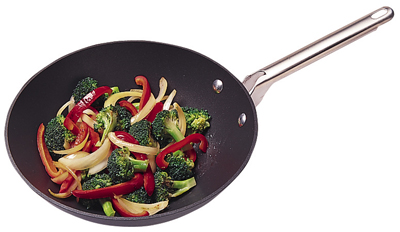 Unfortunately, we have lived our lives learning these habits. We have built habits around the idea of eating meat/poultry/fish/eggs/dairy for nutrition. The fact that there are a plethora of studies showing that these foods cause cardiovascular and chronic diseases means we will have to consider changing our habits and changing our knowledge to maintain health and, possibly, reverse sickness.
Unfortunately, we have lived our lives learning these habits. We have built habits around the idea of eating meat/poultry/fish/eggs/dairy for nutrition. The fact that there are a plethora of studies showing that these foods cause cardiovascular and chronic diseases means we will have to consider changing our habits and changing our knowledge to maintain health and, possibly, reverse sickness.
An example of reversal is Dr. Elizabeth Blackburn’s study on telomeres, protective protein caps at the ends of DNA strands that protect its deterioration. She discovered that they wear down from age and stress. With 30 minutes of exercise a day and a vegetarian diet, she was able to reverse this deterioration in her subjects. Wow!
Another MD in Escape Fire, Pamela Ross, comments,
“We have become a society where you drive up and get what you want; and you drive off.”
The habits we have developed of eating fast food is a direct result of the health care system’s misguidance through non-guidance so that we believed it was okay to indulge in greasy (oily and fried) food, sugary food, salty food, processed animal food.
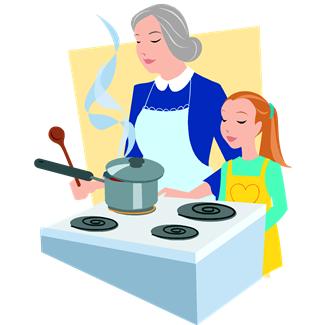 The sad thing is, for the most part, we are not aware, especially in the poorer communities, that the nutritionally calculated value of drive up food is reduced to almost nil because of the negative health side-effects from eating it. The other equally devastating issue is that those of us who know that fast food is bad don’t know what to eat as an alternative for the same shoestring budget expense. Fortunately, children are learning plant-based alternatives and ways to budget for healthy food through their elementary schools. And they are bringing this information home. Go early ed teachers!
The sad thing is, for the most part, we are not aware, especially in the poorer communities, that the nutritionally calculated value of drive up food is reduced to almost nil because of the negative health side-effects from eating it. The other equally devastating issue is that those of us who know that fast food is bad don’t know what to eat as an alternative for the same shoestring budget expense. Fortunately, children are learning plant-based alternatives and ways to budget for healthy food through their elementary schools. And they are bringing this information home. Go early ed teachers!
Dean Ornish, MD and Head of the Preventive Medicine Research Institute, in Escape Fire, mentions the habits we need for good health: diet (meaning nutritious food and water), exercise, love and support and a healthy lifestyle. He has a strong reaction to those in the “system” who consider acupuncture and meditation for pain as well as lifestyle changes for health radical intervention. He says,
“Radical? Compared to cutting a chest open? Give me a break.”
His comment is made so that we realize to think twice about those in the medical field who continue to support the “sickness model” we have built in the United States and are leery about accepting the “preventive & integrative model” of health care even though the evidence
for success is apparent.
Ornish started his work in 1977 to establish that lifestyle changes (meditation, yoga, plant-based diet, personal support) can stop and reverse coronary artery disease. In 1998, he published research showing that comprehensive lifestyle changes turned gene expression on and off in 3 months. Holy moly!
CONCLUSION
 If the habits we have collected regarding medicine, treatment, food, lifestyle choices have been based on misinformation, it’s time to take a look at the foundation on which they were built. This is going to mean changing some habits. It’s also going to involve re-educating ourselves as to which medical professionals know what. Of course, it’s difficult to change doctors. But, if the ones we have are not integrating the necessary health habits into the mix, it might be time. At least, we need to do our own research about some of the things in this article.
If the habits we have collected regarding medicine, treatment, food, lifestyle choices have been based on misinformation, it’s time to take a look at the foundation on which they were built. This is going to mean changing some habits. It’s also going to involve re-educating ourselves as to which medical professionals know what. Of course, it’s difficult to change doctors. But, if the ones we have are not integrating the necessary health habits into the mix, it might be time. At least, we need to do our own research about some of the things in this article.
Why? Because we don’t want to wait until we get a disease to act. We want to act now so we don’t get a disease.
If we already have a disease, we might want to look at all options available to work with it. There are many choices between drug therapy and choosing to take no drugs. With more knowledge, we can become proficient at changing habits that do not support us. The aura around doctors, that they can do no wrong, is gone, even if we want it to be there. We must be more responsible for understanding our health. Hopefully, we can do this with the help of dedicated medical professionals, who will be open to our wanting to look at integrating lifestyle, nutrition, love and support and exercise.
ACTION STEPS
1) Increase your amount of daily exercise by 5 minutes. If you do not exercise yet, start slowly with 5 minutes of dancing, tai chi, walking or stretching. You can scroll down to the 4th video on this page to start: dianegold.com/tai_chi.html.
2) Add 1 new plant-based main dish to your weekly meal plan.
3) Call someone you know and talk about your excitement over your lifestyle changes. If you do not yet know anyone to call, you can go to askew2u.com and click some answers. Or your local librarian is a place to make contact.
4) Take 5 minutes a day for a week to research any habit you have that you would like to change.
5) Drink an extra glass of water daily for a week.
6) Continue, at least, 3 of these steps for a month. Enjoy!
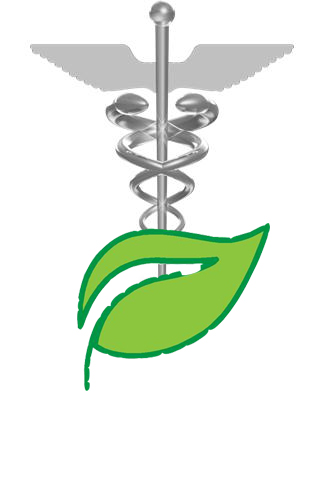
FEEDBACK
Please leave a comment and LIKE.
DIANE GOLD, AUTHOR
Diane Gold, Founder of Warriors of Weight, Turning Habits Into Health, is a mentor in tai chi, kung fu and meditation, a music, fitness and stress expert, dedicated mom, studying plant-based nutrition.
She believes we can learn much by taking responsibility for ourselves. She says,
“Although we have been led to believe that our total health is in the hands of our doctors, they have not been trained in nutrition, for the most part; and many discoveries that would impact the profit margin of the manufacturers of pharmaceuticals and new equipment who supply doctors with their wares, have been withheld or not covered in doctor’s continuing education.
“Further, to satisfy lobbyists in the meat and dairy industries, nutritional discoveries do not make it to mainstream media, usually. As a result, we have been eating incorrectly, using pharmaceuticals instead of lifestyle changes as our medicine and have not been reaching out for the support we deserve.
“Until now.
“From now on, let’s make an effort to eat well, exercise well, meditate well and support each other. Let’s consider pharmacological regimes second, if possible, and changes in lifestyle first. Let’s get the new knowledge we need to make important decisions about our own lives.
“Special note: I truly believe in the wonders of drug therapy and its magic, when appropriate. And congratulate the drug research that has gotten us where we are. I also congratulate all the pioneers who are taking the time to research and report on plant-based nutrition and mind/body modalities to make these part of our new and improved U.S. Health Care System.”

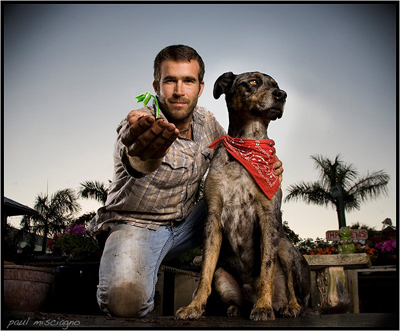
 Farmer Jay also mentioned that, for every calorie of food grown in the United States, we expend 7 calories of fossil fuel.
Farmer Jay also mentioned that, for every calorie of food grown in the United States, we expend 7 calories of fossil fuel.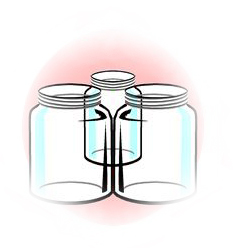
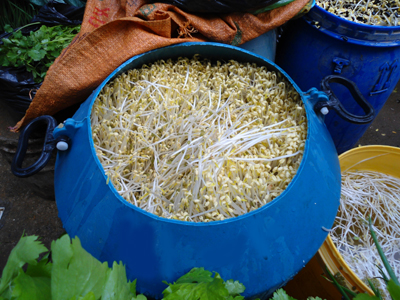
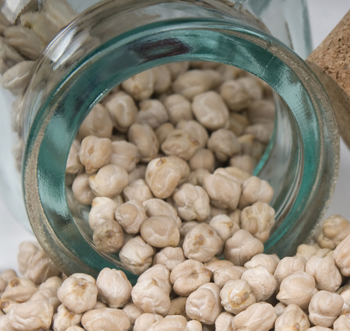
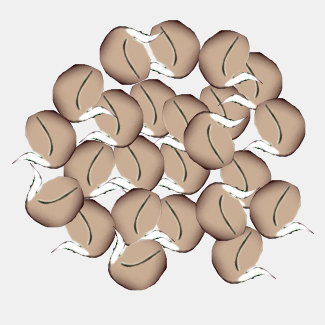
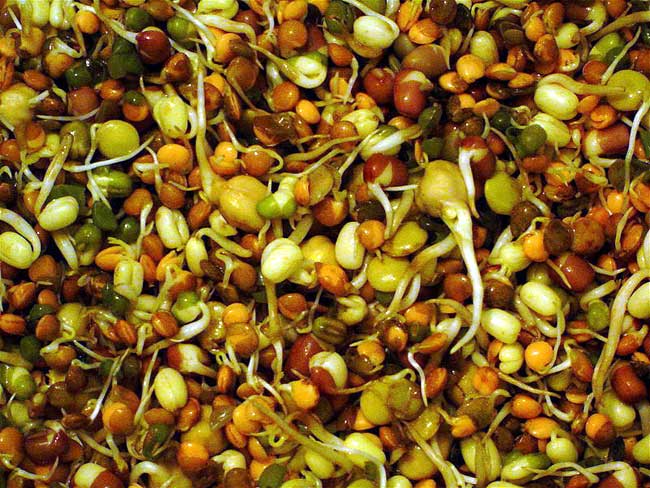 5) TASTE.
5) TASTE.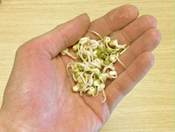
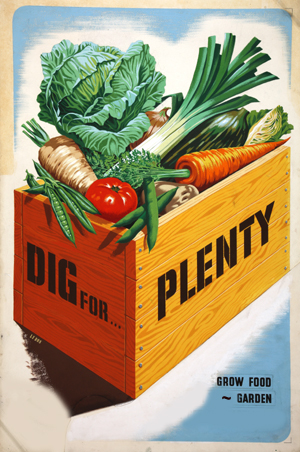
 The gender issue is alive and well all over the world. There are many sides to it and hurdles we can turn to our advantage. I just read in Wikipedia,
The gender issue is alive and well all over the world. There are many sides to it and hurdles we can turn to our advantage. I just read in Wikipedia, As a direct result of our having been deemed the weaker sex in the past, women may act with cold, ruthless and inflexible behaviors. If we react because of a perceived vulnerable reputation, we’re living someone else’s perception. If we become strong, capable achievers, we will change old thinking. As the decades pass.
As a direct result of our having been deemed the weaker sex in the past, women may act with cold, ruthless and inflexible behaviors. If we react because of a perceived vulnerable reputation, we’re living someone else’s perception. If we become strong, capable achievers, we will change old thinking. As the decades pass. Because our families may have bought into the gender issue; we women may not have learned boxing, martial arts, how to stand up for our physical selves. We may be walking around lacking personal protection training with that shaky inner feeling of slight anxiety. This emotion is not gender specific, although many favor the old gender specific attitudes; this insecurity shows up in anyone who has not been trained in strength training, meditation and some type of combat. A big oversight in our school and parenting systems leaves this out. This deprivation of training causes much stress that exists in anyone who has ever been confronted by a bully, a demanding significant other or an authority figure.
Because our families may have bought into the gender issue; we women may not have learned boxing, martial arts, how to stand up for our physical selves. We may be walking around lacking personal protection training with that shaky inner feeling of slight anxiety. This emotion is not gender specific, although many favor the old gender specific attitudes; this insecurity shows up in anyone who has not been trained in strength training, meditation and some type of combat. A big oversight in our school and parenting systems leaves this out. This deprivation of training causes much stress that exists in anyone who has ever been confronted by a bully, a demanding significant other or an authority figure.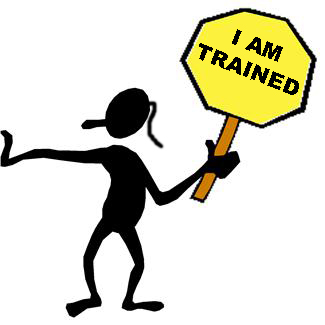 It is most appropriate for every one of us to learn how to protect ourselves: girl, boy, woman, man. As they say, knowledge is power. When we are well trained, we doubt ourselves less, maintain awareness of what’s around the corner and are more prepared to interpret and successfully meet physical contact and body language of others.
It is most appropriate for every one of us to learn how to protect ourselves: girl, boy, woman, man. As they say, knowledge is power. When we are well trained, we doubt ourselves less, maintain awareness of what’s around the corner and are more prepared to interpret and successfully meet physical contact and body language of others. One wonders why personal safety training has not been added to “the” required school curriculum beginning in elementary school. This type of training is basic to our ability to build a strong emotional and physical foundation. How could it be left out? It also tempers the spirit so that violence is met with temperance. Go figure.
One wonders why personal safety training has not been added to “the” required school curriculum beginning in elementary school. This type of training is basic to our ability to build a strong emotional and physical foundation. How could it be left out? It also tempers the spirit so that violence is met with temperance. Go figure.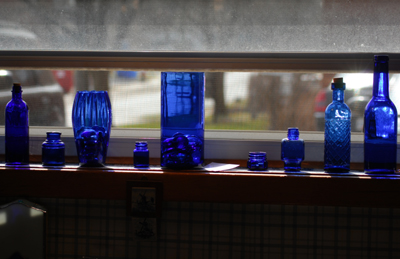 We are not objects to be gawked at dressing for the pleasure of others. We are brilliant beings who can choose the way we look and feel in a world we are involved in changing. If we choose to dress for others, that’s great. As long as it soothes, rather than inflames, our nature.
We are not objects to be gawked at dressing for the pleasure of others. We are brilliant beings who can choose the way we look and feel in a world we are involved in changing. If we choose to dress for others, that’s great. As long as it soothes, rather than inflames, our nature.
 7)
7) We remember the impressions from our childhood, the good, the bad, especially the ugly. There are many we haven’t even actualized into words. They form us, though.
We remember the impressions from our childhood, the good, the bad, especially the ugly. There are many we haven’t even actualized into words. They form us, though. In November, 1969, I ended up going to the Palm Beach Pop Music Festival, a glorious lifetime game changer of 3 cold, wet and muddy days where I saw Janis Joplin, The Rolling Stones, Iron Butterfly and a host of other musicians, friends, action. Yes, they were singing about peace and what was wrong with our time with our presence in Vietnam very much on our minds. We wore tie dyed t-shirts, flowers in our hair, peace signs on our clothing and marched for various freedoms which are now common place.
In November, 1969, I ended up going to the Palm Beach Pop Music Festival, a glorious lifetime game changer of 3 cold, wet and muddy days where I saw Janis Joplin, The Rolling Stones, Iron Butterfly and a host of other musicians, friends, action. Yes, they were singing about peace and what was wrong with our time with our presence in Vietnam very much on our minds. We wore tie dyed t-shirts, flowers in our hair, peace signs on our clothing and marched for various freedoms which are now common place. We have all listened to lectures, read some article, report, paper or book justifying the need for peace. Although these intellectual pursuits are impressive, they are not exciting enough to make us get involved enough to empower a movement. Most of the time, we do not move because most of what we hear and read is dry and does not create that exponentially growing enthusiasm we require to take a committed step.
We have all listened to lectures, read some article, report, paper or book justifying the need for peace. Although these intellectual pursuits are impressive, they are not exciting enough to make us get involved enough to empower a movement. Most of the time, we do not move because most of what we hear and read is dry and does not create that exponentially growing enthusiasm we require to take a committed step.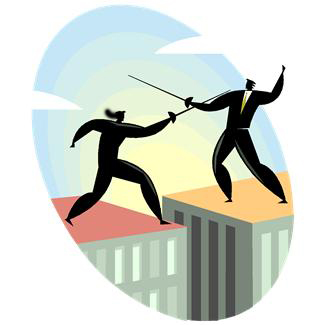 Aggressive behavior involves fighting, yelling, anger and conflict resolution that usually ends in violence. We, as civilized people, accomplish temporary territorial expansion, human rights as we see them at the time of issue and winning a struggle of will until the next powerful wave of fellow humans decides there is a need for change. Not a great show of modern civilization.
Aggressive behavior involves fighting, yelling, anger and conflict resolution that usually ends in violence. We, as civilized people, accomplish temporary territorial expansion, human rights as we see them at the time of issue and winning a struggle of will until the next powerful wave of fellow humans decides there is a need for change. Not a great show of modern civilization.
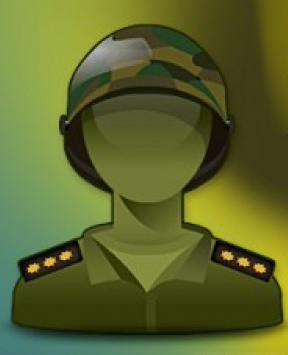 (I am in deep gratitude to our military fighters who protect our children, our way of life, our freedoms. At this time, there is need for such military strength. Will this always be our nature, or can we evolve?
(I am in deep gratitude to our military fighters who protect our children, our way of life, our freedoms. At this time, there is need for such military strength. Will this always be our nature, or can we evolve?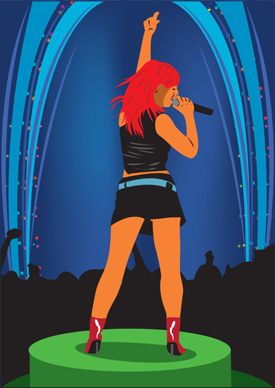 It’s because of the pizazz in some of us, often celebrities, that the others of us are sparked to take action.
It’s because of the pizazz in some of us, often celebrities, that the others of us are sparked to take action. You may remember
You may remember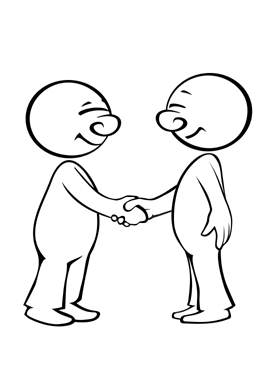 Since we all like to be entertained and we get involved by celebrity messages, let’s continue to use entertainment to make sparks fly. It’s sexy, creative, diverse, instantaneous. We become instantly involved when we hear a song that we like or see art that is beautiful.
Since we all like to be entertained and we get involved by celebrity messages, let’s continue to use entertainment to make sparks fly. It’s sexy, creative, diverse, instantaneous. We become instantly involved when we hear a song that we like or see art that is beautiful.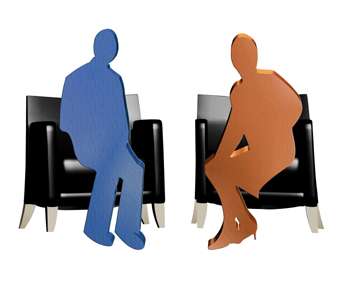 Start talking to someone who has grown up in war. When they get inflammatory about their opposing tribe, don’t get inflammatory or judgmental. Work to understand this behavior.
Start talking to someone who has grown up in war. When they get inflammatory about their opposing tribe, don’t get inflammatory or judgmental. Work to understand this behavior.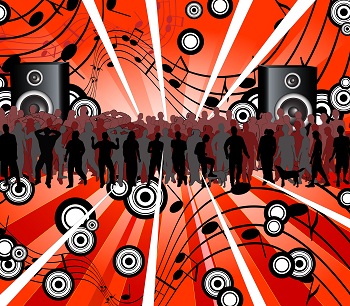 Commit that you make it your goal to pick a performer that fires you up: a musician, a visual artist, an actor, a creator. Pick one who donates to a peace cause. Go to concerts of this performance troupe, either in person or online. Follow the network attached to this performer, and look into the organization that benefits from the donation.
Commit that you make it your goal to pick a performer that fires you up: a musician, a visual artist, an actor, a creator. Pick one who donates to a peace cause. Go to concerts of this performance troupe, either in person or online. Follow the network attached to this performer, and look into the organization that benefits from the donation.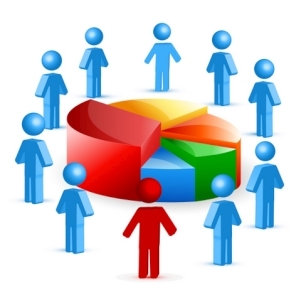 Join a network that is all about getting people together for the purpose of creating new art, new music, new creativity for the sake of upgrading our peace, our resources, our human rights and downgrading our greed and our habits that cause us to be unhealthy.
Join a network that is all about getting people together for the purpose of creating new art, new music, new creativity for the sake of upgrading our peace, our resources, our human rights and downgrading our greed and our habits that cause us to be unhealthy.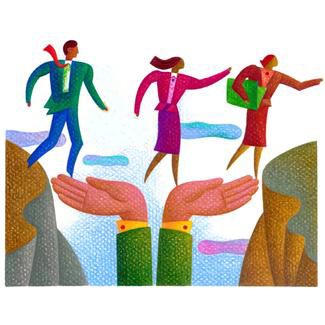 In order to build a peace bridge, we have to work every day to rid ourselves of old ideas, old reactions, our own prejudices. How?
In order to build a peace bridge, we have to work every day to rid ourselves of old ideas, old reactions, our own prejudices. How?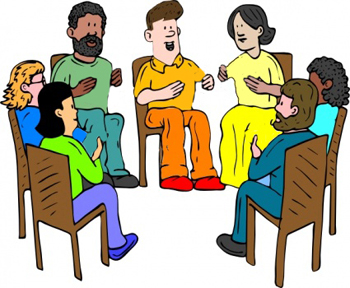 Peace needs a bridge that we, individually and collectively, can build. Every day, we can choose to back away from our own need for power by submitting to listen to someone; we can build the bridge. When we act well, others see it and may make it part of their culture. When we yield, the more powerful we become. We may even release the anger that causes war.
Peace needs a bridge that we, individually and collectively, can build. Every day, we can choose to back away from our own need for power by submitting to listen to someone; we can build the bridge. When we act well, others see it and may make it part of their culture. When we yield, the more powerful we become. We may even release the anger that causes war.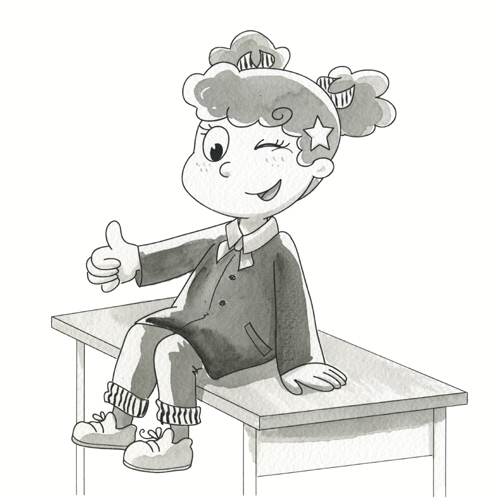
 I was thinking about the studies I read, the nutrition I study and have access to, the articles I write on how to lead a better life through no stress, better habits and good times. When all of a sudden, I realized that the techniques I write about are luxurious. Meaning able to be executed because of our luxury. I knew it was time to focus on some of those luxuries that we take for granted.
I was thinking about the studies I read, the nutrition I study and have access to, the articles I write on how to lead a better life through no stress, better habits and good times. When all of a sudden, I realized that the techniques I write about are luxurious. Meaning able to be executed because of our luxury. I knew it was time to focus on some of those luxuries that we take for granted.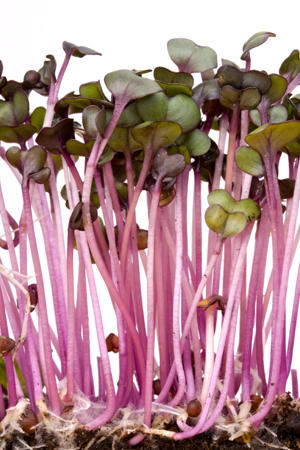 Almost
Almost 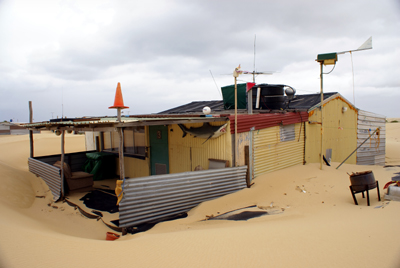 There are so many different levels of having shelter. Some of us used to have a tin house that was washed away by a hurricane. Others of us have a small apartment. And others own several palatial homes in different parts of the world. Whatever we have, it is a gift. Especially if we can actually be comfortable in it.
There are so many different levels of having shelter. Some of us used to have a tin house that was washed away by a hurricane. Others of us have a small apartment. And others own several palatial homes in different parts of the world. Whatever we have, it is a gift. Especially if we can actually be comfortable in it. Not to get gushy, but, the 1 thing the United States offers is a special array of freedoms. True, we have a little imbalance of power, from time to time, when it comes to the corporation vs. the individual. But, mostly, we have the largest vat of freedom in the world. Not to be taken lightly.
Not to get gushy, but, the 1 thing the United States offers is a special array of freedoms. True, we have a little imbalance of power, from time to time, when it comes to the corporation vs. the individual. But, mostly, we have the largest vat of freedom in the world. Not to be taken lightly.
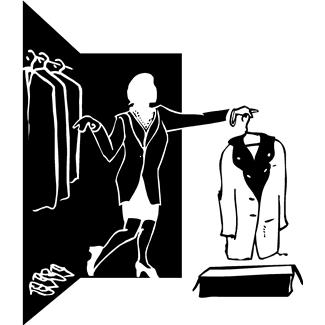
 5) PEACE & FREEDOM ACTION STEP
5) PEACE & FREEDOM ACTION STEP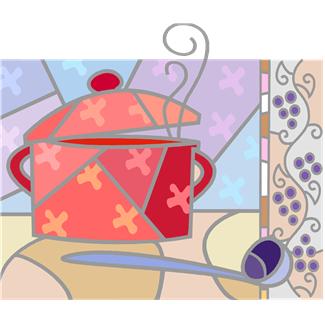 In The New England Journal of Medicine last week, a prominent researcher noted that much of the conventional wisdom about weight loss has little basis in science. But his article did not address one oft-asked question: Is your waistline affected by when you eat, or is a calorie always just a calorie whenever you eat it?
In The New England Journal of Medicine last week, a prominent researcher noted that much of the conventional wisdom about weight loss has little basis in science. But his article did not address one oft-asked question: Is your waistline affected by when you eat, or is a calorie always just a calorie whenever you eat it?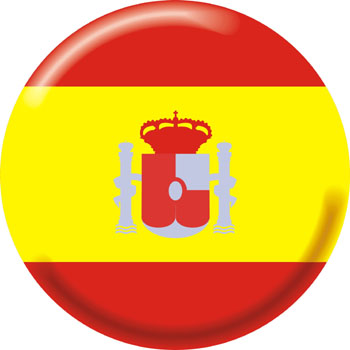 In a new study, published in The International Journal of Obesity, researchers at Harvard and elsewhere followed 420 overweight men and women in Spain in a 20-week weight loss program.
In a new study, published in The International Journal of Obesity, researchers at Harvard and elsewhere followed 420 overweight men and women in Spain in a 20-week weight loss program.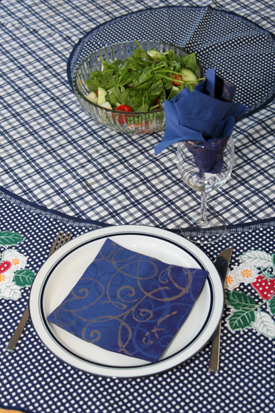 But there was a critical difference in the timing of their main meal of the day, which in this case, because of the Mediterranean setting, was lunch. In both groups, the meal comprised about 40 percent of their daily calories. But one group consistently ate it before 3 p.m. daily, while the other did so after 3 p.m.
But there was a critical difference in the timing of their main meal of the day, which in this case, because of the Mediterranean setting, was lunch. In both groups, the meal comprised about 40 percent of their daily calories. But one group consistently ate it before 3 p.m. daily, while the other did so after 3 p.m. There were many times I experienced what it feels like to wake up the morning after drinking alcohol. In contrast and most of the time, I have experienced waking up feeling crystal clear, powerful, joyful and healthy. Once I decided to rid myself of drinking alcohol at all, I woke up lucid every morning. This got me to thinking.
There were many times I experienced what it feels like to wake up the morning after drinking alcohol. In contrast and most of the time, I have experienced waking up feeling crystal clear, powerful, joyful and healthy. Once I decided to rid myself of drinking alcohol at all, I woke up lucid every morning. This got me to thinking.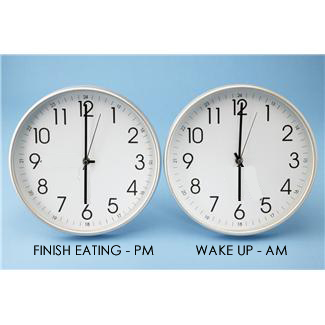 But how alert would I be, I asked myself, if I could increase the period of time between my last meal and drink (except for hydrating water or green tea because the quercetin in it is a great anti-viral, anti-inflammatory, anti-cancer enzyme)?
But how alert would I be, I asked myself, if I could increase the period of time between my last meal and drink (except for hydrating water or green tea because the quercetin in it is a great anti-viral, anti-inflammatory, anti-cancer enzyme)?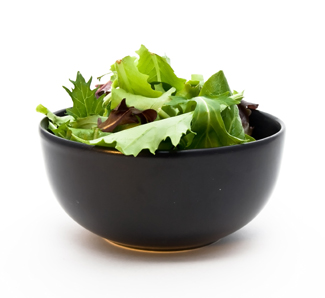 Figure out a way to finish eating before 6 p.m. If you want to or have to socialize after that time (this will inevitably end up in eating), plan ahead that you will only eat raw greens in a salad with a little olive oil and lemon juice or a plate of steamed leafy greens with a drop of olive oil and lemon juice.
Figure out a way to finish eating before 6 p.m. If you want to or have to socialize after that time (this will inevitably end up in eating), plan ahead that you will only eat raw greens in a salad with a little olive oil and lemon juice or a plate of steamed leafy greens with a drop of olive oil and lemon juice.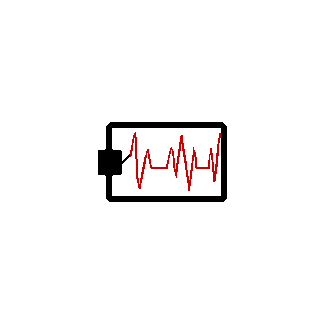 3)
3)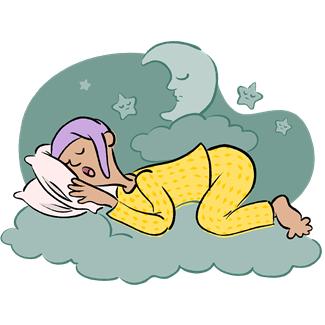
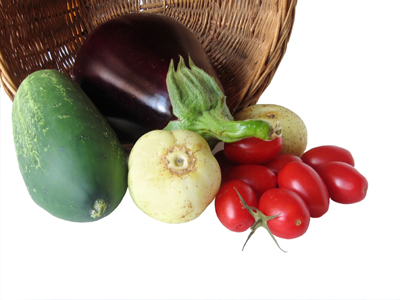 The protein myth has to do with combining proteins so as to consume all essential amino acids (the 9 that the body does not produce), the building blocks of protein, in 1 sitting. This concept was promoted in the 70s but was repudiated 10 years later as false and misleading.
The protein myth has to do with combining proteins so as to consume all essential amino acids (the 9 that the body does not produce), the building blocks of protein, in 1 sitting. This concept was promoted in the 70s but was repudiated 10 years later as false and misleading.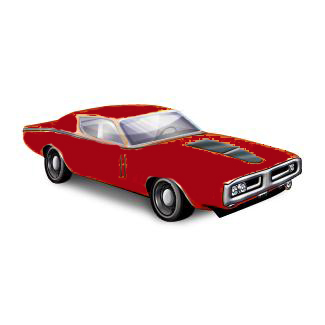 Funny how habits stick with us so naturally. Think about before you knew how to ride a bike. Hard to recall because once we know, the steps to riding are ingrained in our head. For those of us who ride, there was a time when we didn’t. Now, it is second nature and never forgotten once learned. Take driving a car. The reflexes and reactions we use to accomplish safe driving are habits ingrained in that come back quickly if we put them down.
Funny how habits stick with us so naturally. Think about before you knew how to ride a bike. Hard to recall because once we know, the steps to riding are ingrained in our head. For those of us who ride, there was a time when we didn’t. Now, it is second nature and never forgotten once learned. Take driving a car. The reflexes and reactions we use to accomplish safe driving are habits ingrained in that come back quickly if we put them down.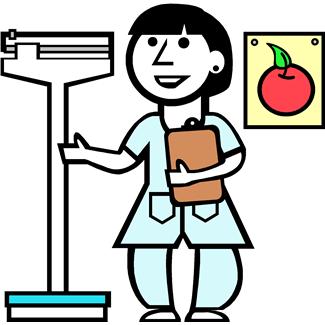 There are nebulous references all over current nutritional literature that talk about complete and incomplete protein. This is, in part, because many dieticians and nutritionists learn from books that still promote this combining idea or the superiority of a meat diet over a plant-based diet.
There are nebulous references all over current nutritional literature that talk about complete and incomplete protein. This is, in part, because many dieticians and nutritionists learn from books that still promote this combining idea or the superiority of a meat diet over a plant-based diet.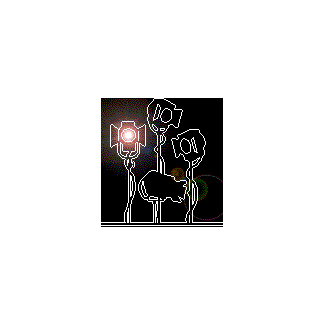 “Is it true that complementary proteins must be eaten together to count as a complete protein source?
“Is it true that complementary proteins must be eaten together to count as a complete protein source?
 The industries that have the most advertising capital, meat and dairy, are the ones whose ads we see and hear. When was the last time we saw a billboard up saying how nutritionally sound spirulina was? Or kale juice from actual real, raw, unsprayed leaves?
The industries that have the most advertising capital, meat and dairy, are the ones whose ads we see and hear. When was the last time we saw a billboard up saying how nutritionally sound spirulina was? Or kale juice from actual real, raw, unsprayed leaves?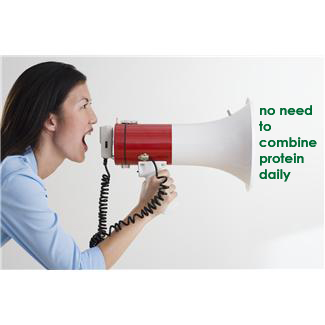
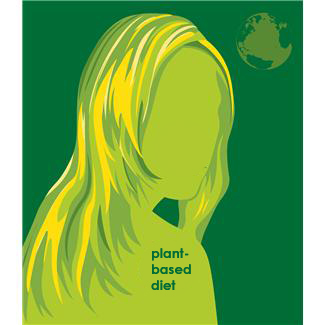 2)
2) 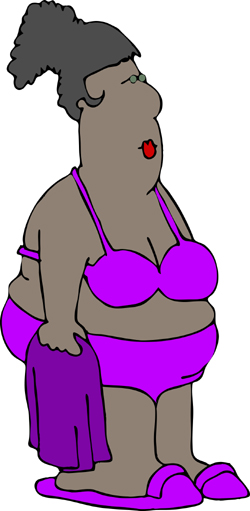 Habits, as we know if we think about them, are patterns of behavior reinforced through repetition until they are almost involuntary action. Here’s a short list of these responses: eating oily, salty or sugary snacks to satisfy a food craving; verbally reacting to a child because that’s how we were raised; using mind/body-altering substances (prescribed or not) because we are tired, bored, nervous or emotional; shutting down our emotions because it’s safer than experiencing pain; acting out anger when someone challenges us; eating processed, unhealthy foods to escape; meditating before breakfast; brushing our teeth; taking our shoes off before we enter a residence; swimming after work; praying
Habits, as we know if we think about them, are patterns of behavior reinforced through repetition until they are almost involuntary action. Here’s a short list of these responses: eating oily, salty or sugary snacks to satisfy a food craving; verbally reacting to a child because that’s how we were raised; using mind/body-altering substances (prescribed or not) because we are tired, bored, nervous or emotional; shutting down our emotions because it’s safer than experiencing pain; acting out anger when someone challenges us; eating processed, unhealthy foods to escape; meditating before breakfast; brushing our teeth; taking our shoes off before we enter a residence; swimming after work; praying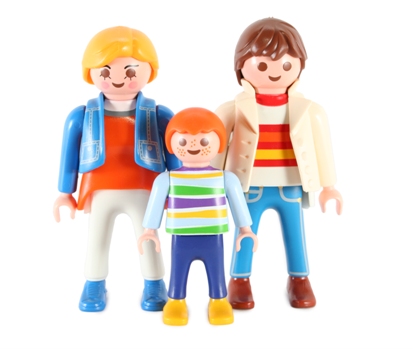 Because we are all so universally tied to habits and we all have them, WarriorsOfWeight.com now honors moms, daughters, fathers, sons, teen girls, teen boys, grandparents in focusing on and educating about Turning Habits Into Health and discussing all the astounding techniques to help each one of us along the way.
Because we are all so universally tied to habits and we all have them, WarriorsOfWeight.com now honors moms, daughters, fathers, sons, teen girls, teen boys, grandparents in focusing on and educating about Turning Habits Into Health and discussing all the astounding techniques to help each one of us along the way.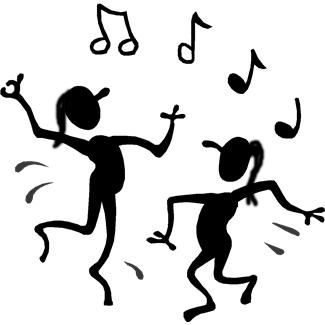 Whether we speak about personal development techniques like tai chi, free dance techniques, music and its effects on balance, involvement in social change to get us personally where we want to be or the science of proper nutrition to maximize our bodies;
Whether we speak about personal development techniques like tai chi, free dance techniques, music and its effects on balance, involvement in social change to get us personally where we want to be or the science of proper nutrition to maximize our bodies;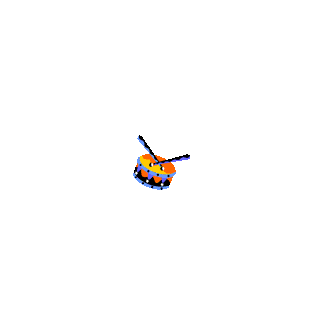 Turning
Turning 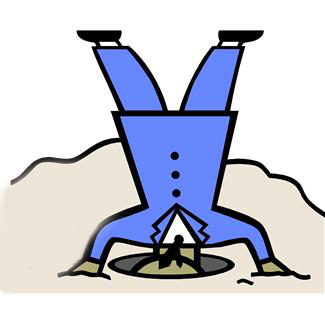 So what are the ways to make this miraculous change in habit? Do we have to turn ourselves inside out?
So what are the ways to make this miraculous change in habit? Do we have to turn ourselves inside out?



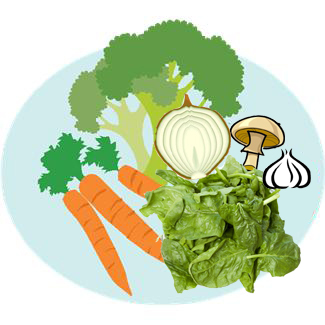 1)
1)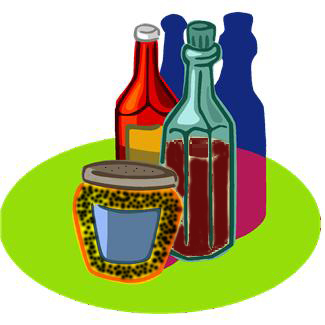 6)
6)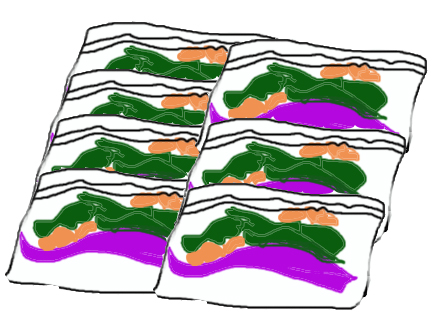 9)
9)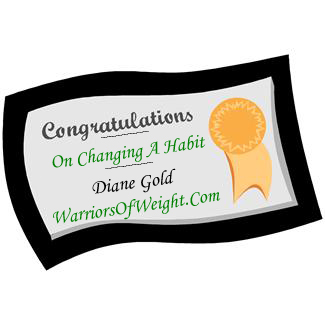
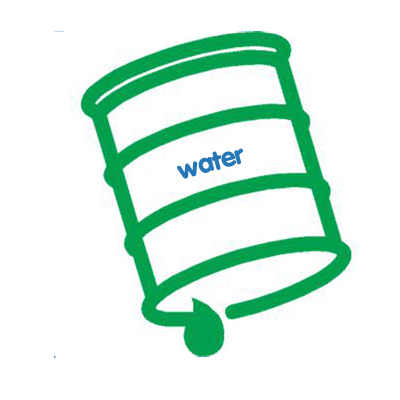 Did you know that a huge amount of our world population does not have enough water or has to walk to get it? According to Kathleen Parker’s article, quoting Charles Fishman’s The Big Thirst (on my pending reading list), we, Westerners, use 18.5 gallons a day flushing our toilets while there is only 1/100th of 2.5 percent fresh water on the planet or, if the oceans were broken down into mass, 2.5% of the Earth’s mass. Not a lot.
Did you know that a huge amount of our world population does not have enough water or has to walk to get it? According to Kathleen Parker’s article, quoting Charles Fishman’s The Big Thirst (on my pending reading list), we, Westerners, use 18.5 gallons a day flushing our toilets while there is only 1/100th of 2.5 percent fresh water on the planet or, if the oceans were broken down into mass, 2.5% of the Earth’s mass. Not a lot.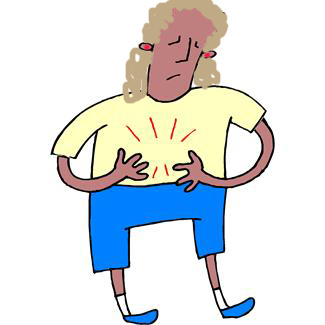 Let’s look at what happens when we start to feel the twinges of hunger. These urges might be immediately after eating, 10 minutes after eating, an hour after, 3 hours apart or more. The amount of time between cravings is a non-judgmental number. The craving begins as an itch, which shows up when it shows up. If we don’t judge ourselves, we won’t be judged! Its intensity determines the level of self-control we need to master it.
Let’s look at what happens when we start to feel the twinges of hunger. These urges might be immediately after eating, 10 minutes after eating, an hour after, 3 hours apart or more. The amount of time between cravings is a non-judgmental number. The craving begins as an itch, which shows up when it shows up. If we don’t judge ourselves, we won’t be judged! Its intensity determines the level of self-control we need to master it. 3)
3)
 After we begin, it will be get much easier for us to recognize and acknowledge it when we have a food urge. Whereas before, we might have felt we had to sneak to eat, we will no longer have to sneak, since our first line of food defense can be healthy, wonderful water. Whereas before, we might have felt guilty for eating mindlessly, we can feel pride because we are eating as part of a technique.
After we begin, it will be get much easier for us to recognize and acknowledge it when we have a food urge. Whereas before, we might have felt we had to sneak to eat, we will no longer have to sneak, since our first line of food defense can be healthy, wonderful water. Whereas before, we might have felt guilty for eating mindlessly, we can feel pride because we are eating as part of a technique.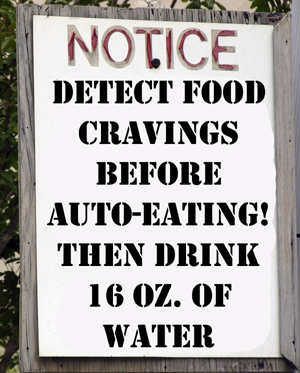 The act of making change takes time and effort. That includes water for weight loss. The biggest effort is in training the mind (changing a habit) that when we have a food craving, we need to embrace it. We need to drink 16 oz. of water, slowly. This is great in theory, but…
The act of making change takes time and effort. That includes water for weight loss. The biggest effort is in training the mind (changing a habit) that when we have a food craving, we need to embrace it. We need to drink 16 oz. of water, slowly. This is great in theory, but…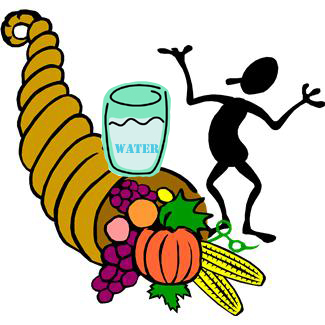 For those of us in the United States and some other countries, we can be extra thankful that we do have water readily available. 2/3 of world families do not (National Geographic Society Geography Awareness Week, 2010). They have to walk to get their water; they have to transport it on shoulders, backs or holding buckets.
For those of us in the United States and some other countries, we can be extra thankful that we do have water readily available. 2/3 of world families do not (National Geographic Society Geography Awareness Week, 2010). They have to walk to get their water; they have to transport it on shoulders, backs or holding buckets.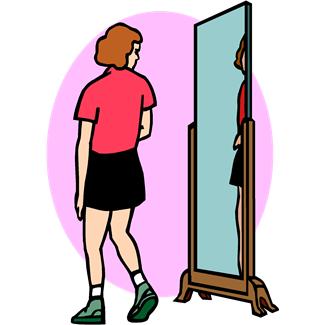 Before we talk about food cravings and how to maximize them for health, I’d like to say that this article is about FAITH, not faith in someone or something else, but faith in ourselves that we may not be able to see yet. It is similar to that faith that many people attribute to a supreme entity; yet, we are going to use faith in ourselves for this lesson.
Before we talk about food cravings and how to maximize them for health, I’d like to say that this article is about FAITH, not faith in someone or something else, but faith in ourselves that we may not be able to see yet. It is similar to that faith that many people attribute to a supreme entity; yet, we are going to use faith in ourselves for this lesson.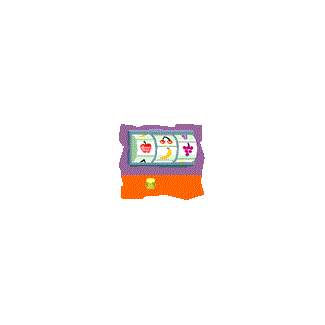 4) We are risk takers, and, like the casino gambler, we bet that eating healthier foods and amounts tomorrow is reason enough for us to gamble with our health and maintain our same habits now.
4) We are risk takers, and, like the casino gambler, we bet that eating healthier foods and amounts tomorrow is reason enough for us to gamble with our health and maintain our same habits now. Think of a band member who is playing the wrong note because she has gotten used to playing that particular note and even enjoys how it sounds. When her band leader corrects her, she will have to change her habit to balance the group. In order to keep her job and continue playing the music that she loves, she will make the change.
Think of a band member who is playing the wrong note because she has gotten used to playing that particular note and even enjoys how it sounds. When her band leader corrects her, she will have to change her habit to balance the group. In order to keep her job and continue playing the music that she loves, she will make the change.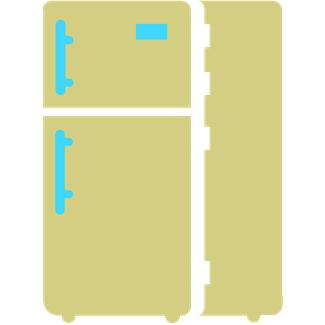
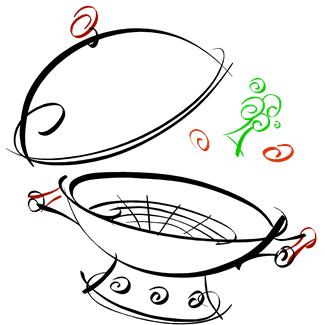 2)
2) 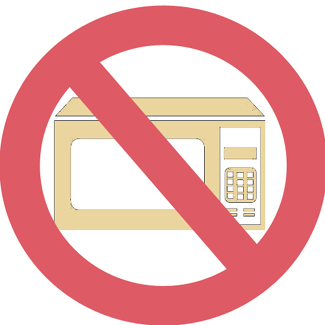 Microwave ovens rob nutrients from our food, and stoves take longer than our craving will wait. Eventually, when we have changed our habit from “cue to instant eating” to “cue to patience to eating healthily,” warming our veggies may be an option.
Microwave ovens rob nutrients from our food, and stoves take longer than our craving will wait. Eventually, when we have changed our habit from “cue to instant eating” to “cue to patience to eating healthily,” warming our veggies may be an option.





